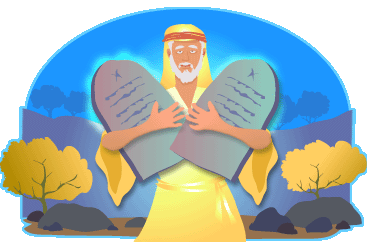 Shavuot, the Feast of the Weeks, is the Jewish holiday celebrating the harvest season in Israel. Shavuot, which means "weeks", refers to the timing of the festival which is held exactly 7 weeks after Passover. Shavuot is known also as Yom Habikkurim, or "the Day of the First Fruits", because it is the time the farmers of Israel would bring their first harvest to Jerusalem as a token of thanksgiving. Shavuot, the Feast of the Weeks, is the Jewish holiday celebrating the harvest season in Israel. Shavuot, which means "weeks", refers to the timing of the festival which is held exactly 7 weeks after Passover. Shavuot is known also as Yom Habikkurim, or "the Day of the First Fruits", because it is the time the farmers of Israel would bring their first harvest to Jerusalem as a token of thanksgiving.
Shavuot also commemorates the anniversary of the giving of the Ten Commandments to Moses and the Israelites at Mount Sinai.
Celebrating the Day of the First Fruits
The farmers of Israel would begin their spring harvests with the barley crop at Passover. The harvest continued for seven weeks as the other crops and fruits began to ripen. As each fruit ripened, the first of each type would not be eaten but instead the farmer would tie a ribbon around the the branch. This ribbon signified that these fruits were Bikkurim, or the first fruits.
At Shavuot the farmers would gather the Bikkurim into baskets and bring them to the city of Jerusalem where they would be eaten in the holy city. The farmers living close to Jerusalem would bring fresh fruits, while those who had to travel a long distance carried dried raisins and figs. This joyful occasion was celebrated with the music of fifes, timbres, and drums. As the pilgrims approached the city walls they were greeted by the inhabitants of the city. Sometimes the King himself would join the procession to the Temple Mount. The Bikkurim ritual is no longer practiced in present day Israel.
|

